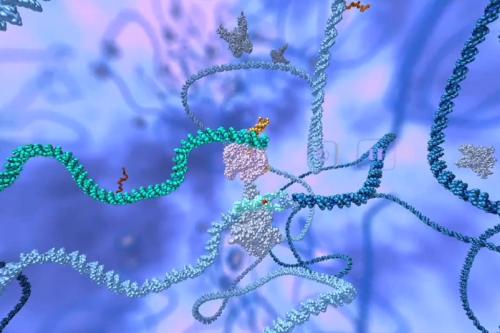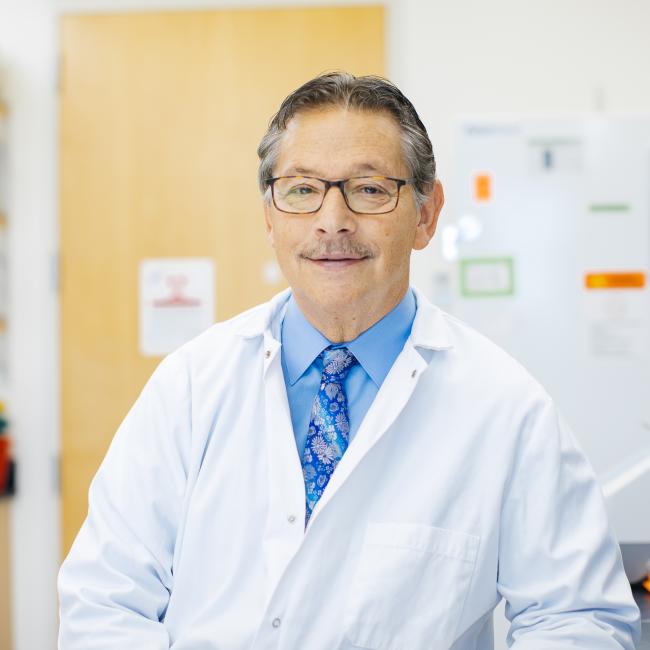
$17 million awarded to launch clinical trial using CRISPR to correct sickle cell disease gene defect
A UC group led by UCSF Benioff Children's Hospital Oakland with UCLA and UC Berkeley has received grants to launch an innovative clinical trial that aims to cure sickle cell disease. The trial, which plans to enroll its first patient in Spring 2022, will use CRISPR-Cas9 gene-editing technology on patients’ own blood stem cells to correct the mutated gene that causes the debilitating disorder.
The UC consortium has received $17 million to support the 4-year trial, in two grants of $8.4 million from the California Institute for Regenerative Medicine and $8.6 million from the NIH Cure Sickle Cell Initiative, supported by the National Heart, Lung, and Blood Institute.
Dr. Mark Walters of UCSF is principal investigator of the clinical trial, with co-investigators Dr. Donald Kohn of UCLA and Fyodor Urnov of the Innovative Genomics Institute, a UC Berkeley–UCSF initiative founded by scientist Jennifer Doudna. Doudna’s role in the groundbreaking development of CRISPR-Cas9 as a genome-engineering technology earned her the 2020 Nobel Prize in Chemistry along with Emmanuelle Charpentier.
This trial is the first to apply CRISPR-Cas9 technology in patients’ own stem cells. Researchers are recruiting patients for treatment in Oakland and Los Angeles, beginning with up to six adults with sickle cell disease. If found to be safe and effective, it will expand to enroll three adolescents aged 12 to 17 years old. Seven patients are expected to be treated in Oakland and two at UCLA.
It is the first time clinical researchers have attempted to correct a harmful beta-globin gene mutation in a patient's blood-forming stem cells with non-virally delivered CRISPR gene-correction tools, according to Dr. Mark Walters, a professor of pediatrics at UCSF.
“This therapy has the potential to transform sickle cell disease care by producing an accessible, curative treatment that is safer than the current therapy of stem cell transplant from a healthy bone marrow donor,” Walters said. “If this is successfully applied in young patients, it has the potential to prevent irreversible complications of the disease.”
Sickle cell disease is a genetic blood disorder that affects the structure and function of hemoglobin, reduces the ability of red blood cells to transport oxygen efficiently, and progresses to a chronic vascular disease that affects approximately 100,000 Americans and millions worldwide, with a disproportionate effect on the Black community.
This trial will combine CRISPR technology developed at the Innovative Genomics Institute with UCLA’s expertise in genetic analysis and cell manufacturing, as well as its clinical excellence in the field, and nearly 50 years of expertise at Benioff Children’s Oakland in sickle cell care, including cord blood and marrow transplantation, and gene therapy.
“The use of CRISPR gene editing to fix the mutation causing sickle cell disease in each patient’s own blood-forming stem cells required the development of new methods to produce more than 100 million cells per patient that are gene-corrected, healthy and pure,” said Dr. Donald Kohn, a distinguished professor of microbiology, immunology and molecular genetics at UCLA and a member of the UCLA Broad Stem Cell Research Center. “Previous research studies were limited to producing ½ to 2 million genetically corrected cells, so this represents a significant increase in scale.”
Sickle cell disease is caused by a single-letter change, or mutation, in human DNA. This trial will use CRISPR genome editing to correct this mutation directly. The project team has developed CRISPR_SCD001, a patient-specific blood stem cell therapy that has been modified by a CRISPR-Cas9 nuclease to stimulate repair of the sickle mutation.
In the current trial, the patient’s blood stem cells will be extracted and sent to the UCLA Human Gene and Cell Therapy Facility to be processed using electrical pulses that create temporary pores in their membranes. These pores allow the CRISPR-Cas9 platform to enter the cells and travel to their nuclei, where it corrects the sickle cell mutation before the cells are reintroduced to the patient.
“The goal is to develop a cure that is not just safe and effective, but one that is affordable to those who need it most,” Doudna said. “There have been a lot of promising developments in recent years with CRISPR-based therapies for sickle cell and other genetic diseases, but it’s essential that we have studies like this that can help us create truly accessible cures.”
